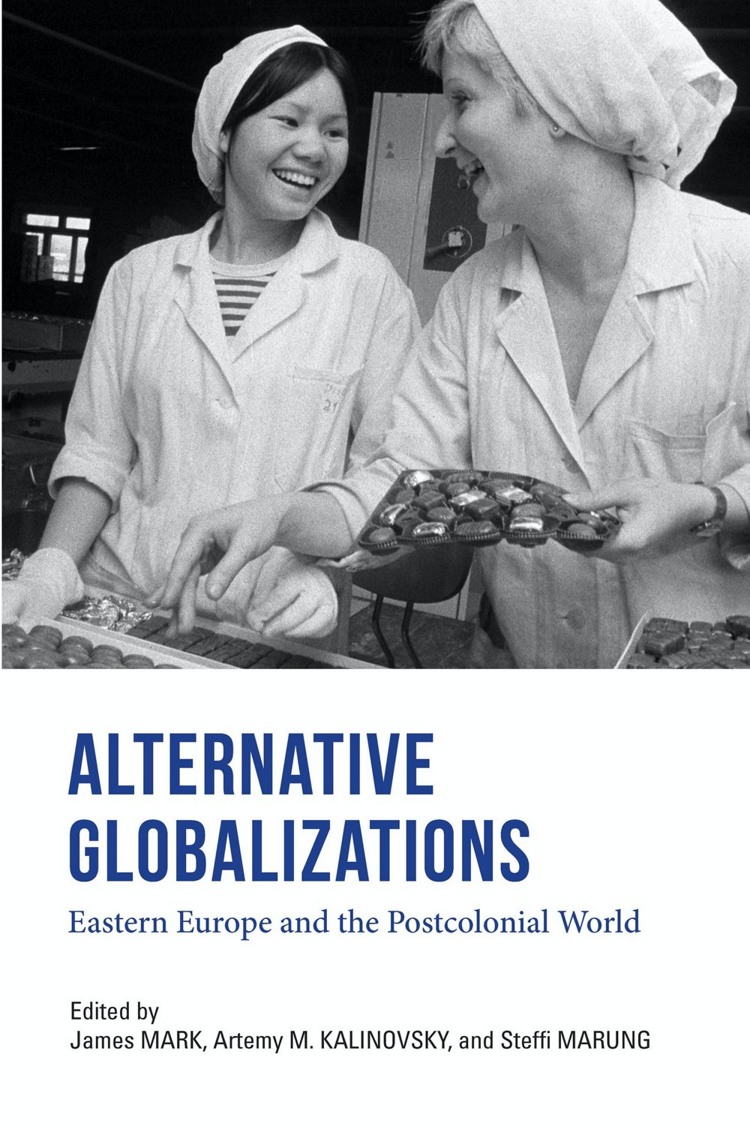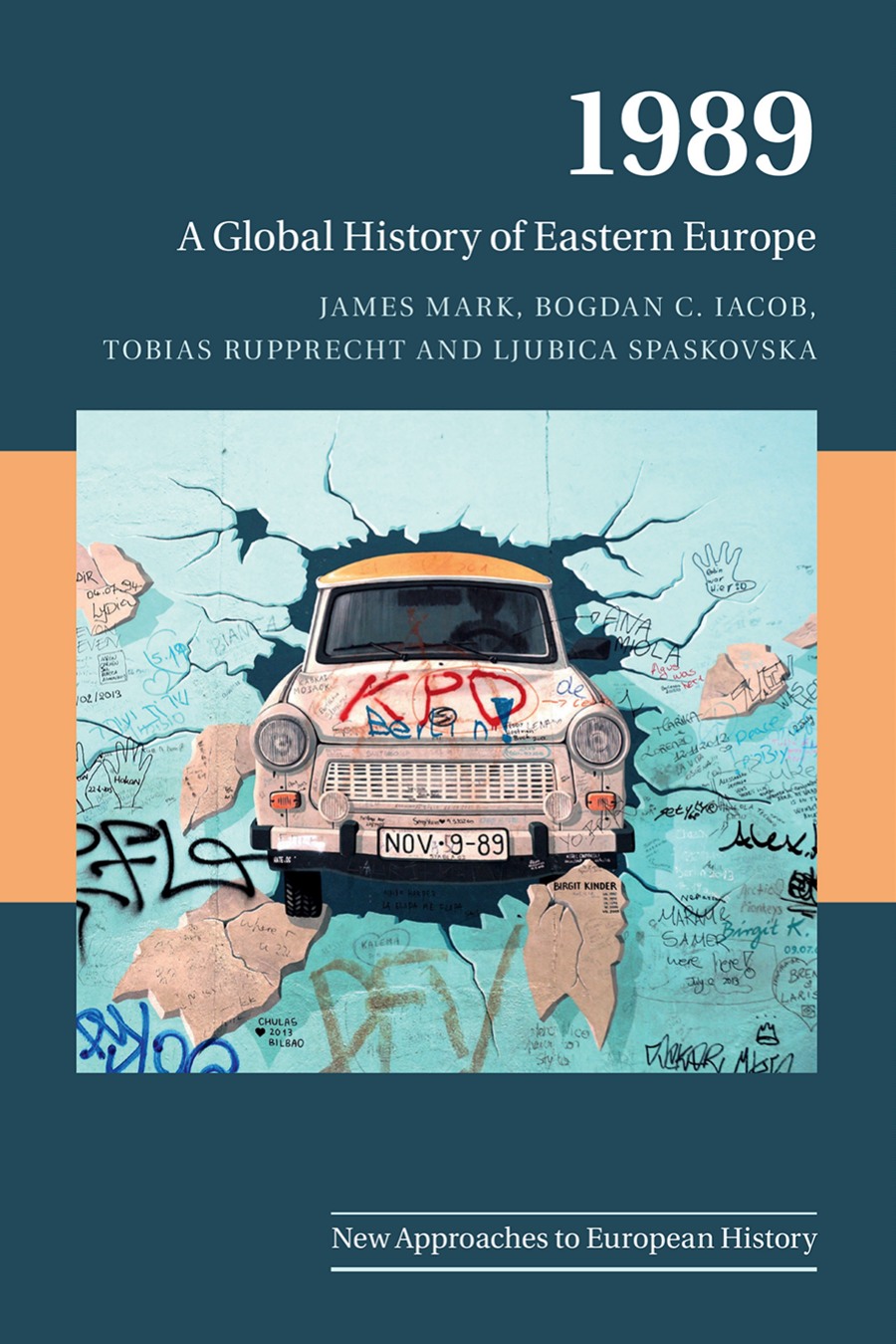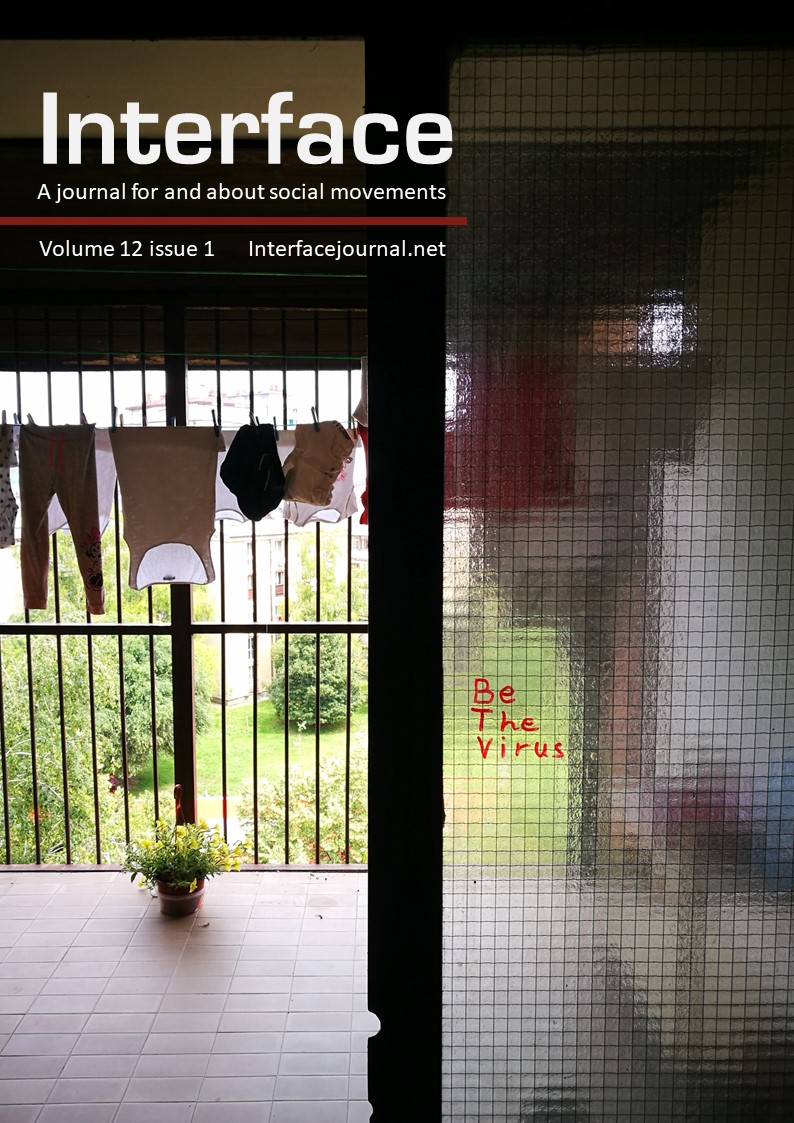James Mark, Artemy Kalinovsky, Steffi Marung (eds.): Alternative Globalizations: Eastern Europe and the Postcolonial World (2020)
Filed under book | Tags: · central europe, china, cold war, decolonization, eastern europe, economy, global south, globalisation, history, internationalism, labour, migration, nationalism, politics, postcolonialism, race, racism, socialism, solidarity, southeastern europe, soviet union

“Globalization has become synonymous with the seemingly unfettered spread of capitalist multinationals, but this focus on the West and western economies ignores the wide variety of globalizing projects that sprang up in the socialist world as a consequence of the end of the European empires. This collection is the first to explore alternative forms of globalization across the socialist world during the Cold War. Gathering the work of established and upcoming scholars of the Soviet Union, Eastern Europe, and China, Alternative Globalizations addresses the new relationships and interconnections which emerged between a decolonizing world in the postwar period and an increasingly internationalist eastern bloc after the death of Stalin. In many cases, the legacies of these former globalizing impulses from the socialist world still exist today. Divided into four sections, the works gathered examine the economic, political, developmental, and cultural aspects of this exchange. In doing so, the authors break new ground in exploring this understudied history of globalization and provide a multifaceted study of an increasing postwar interconnectedness across a socialist world.”
Publisher Indiana University Press, Bloomington, 2020
ISBN 9780253046505, 0253046505
vii+341 pages
Reviews: Jelena Đureinović (Studies of Transition States and Societies, 2020), Markus Sattler (Eurasian Geography and Economics, 2020), Ondřej Bělíček (A2larm, 2020, CZ).
Interviews with co-author (James Mark): Zoltán Ginelli (LeftEast, 2020, Part 2, Part 3).
Project website
Publisher
WorldCat
PDF (7 MB)
Comment (0)James Mark, Bogdan C. Iacob, Tobias Rupprecht, Ljubica Spaskovska: 1989: A Global History of Eastern Europe (2019)
Filed under book | Tags: · 1989, authoritarianism, capitalism, central europe, communism, democracy, eastern europe, europe, european union, globalisation, history, human rights, illiberalism, internationalism, liberalism, market, migration, nationalism, neoliberalism, politics, post-communism, refugees, socialism, southeastern europe, soviet union, transition

“The collapse of the Berlin Wall has come to represent the entry of an isolated region onto the global stage. On the contrary, this study argues that communist states had in fact long been shapers of an interconnecting world, with ‘1989’ instead marking a choice by local elites about the form that globalisation should take. Published to coincide with the thirtieth anniversary of the 1989 revolutions, this work draws on material from local archives to international institutions to explore the place of Eastern Europe in the emergence, since the 1970s, of a new world order that combined neoliberal economics and liberal democracy with increasingly bordered civilisational, racial and religious identities. An original and wide-ranging history, it explores the importance of the region’s links to the West, East Asia, Africa, and Latin America in this global transformation, reclaiming the era’s other visions such as socialist democracy or authoritarian modernisation which had been lost in triumphalist histories of market liberalism.”
Publisher Cambridge University Press, Cambridge, UK, 2019
New Approaches to European History series, 59
ISBN 9781108427005, 1108427006
vii+372 pages
Reviews: Árpád von Klimo (H-Diplo, 2020), Tilmann Siebeneichner (German History, 2020), Nick Ostrum (Europe Now, 2020),
Interviews with co-author (James Mark): Ondřej Bělíček (A2larm, CZ, 2019), Ondřej Bělíček (Jacobin, 2020), Ronaldas Galinis (LRT.lt, 2020), Rūta Miškinytė (15min.lt, 2020, LT), Zoltán Ginelli (LeftEast, 2020, Part 2, Part 3).
Book summary (Eurozine, 2019).
Project website
Publisher
WorldCat
Interface, 12(1): Organizing amidst COVID-19: Sharing Stories of Struggle (2020)
Filed under journal | Tags: · activism, art, contagion, ecology, feminism, food, internationalism, labour, lgbtq, migration, pandemic, quarantine, refugees, resistance, social movements, solidarity, virus

“The world is on fire, with both fever and flame. After a few months of lockdown, things are erupting in new ways. The movement for Black Lives is demanding an end to anti-Black racism and conversations about abolishing the police are on late night television. In North America, a new world appears to be dawning, one that didn’t seem possible even a month ago. Meanwhile, in the new centre of global capitalism, the long-standing Hong Kong movement seems to be on the point of succumbing to a new wave of repression.
Around the world, movements are strategizing about how to ensure that no one is left behind. In April we put out a call for short pieces on this theme. We could see that the imminent arrival of the virus had generated many different struggles – initially pressure to force some states to take action in the first place, resistance to cuts and demanding benefits. Then came struggles characterized by mutual aid, efforts to protect essential workers, and the most vulnerable, such as the homeless, prisoners, the elderly and the undocumented.
This issue contains pieces originally written for our rolling coverage of movements in the virus, as well as a few pieces written especially for this special issue. They represent reflective activists and engaged researchers trying to grasp what their movements were doing, and what they should do, in an unprecedented situation.
The contributions reflect on movements in Argentina, Australia, Austria, Belize, Bosnia and Herzegovina, Brazil, Canada, China, Denmark, Egypt, France, Germany, Greece, Haiti, India, Iran, Ireland, Italy, Japan, Kenya, Mexico, Morocco, Pakistan, Russia, Serbia, Singapore, Spain, Switzerland, Syria, Turkey, the UK, the US and globally and are written in English, French, Portuguese and Spanish.” (from Editorial)
Edited by Sutapa Chattopadhyay, Lesley Wood, and Laurence Cox
Publisher Interface, July 2020
ISSN 2009-2431
683 pages

